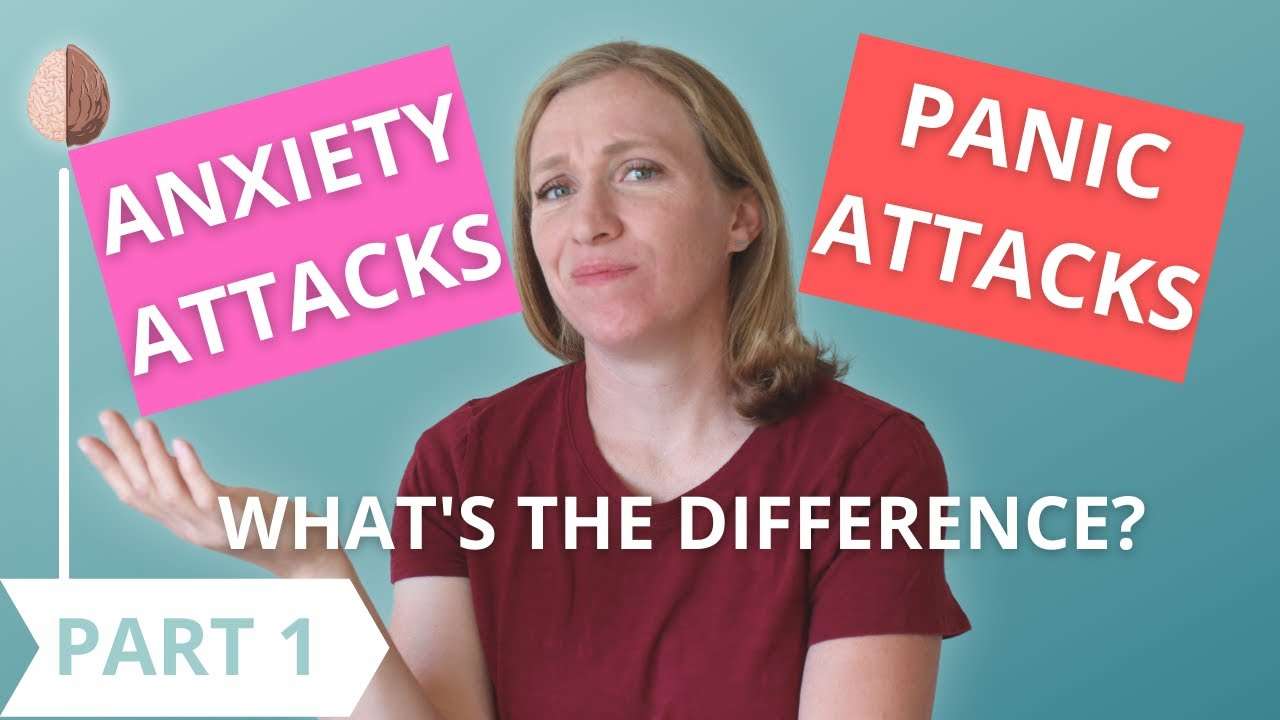Set clear boundaries
Practising good boundaries and expectations can make a big difference. If your loved one is feeling insecure about being rejected or abandoned, or seems worried about being left alone, it can help to clarify what you can expect from each other and to communicate about this calmly and patiently if things become unclear.
Plan ahead
When the person you’re supporting is feeling well, ask them how you can help them best when things are difficult. See our pages on supporting someone who feels suicidal, and supporting someone who is self-harming for more information.
Learn their triggers
Talk to your loved one and try to find out what sort of situations or conversations might trigger negative thoughts and emotions. Understanding their triggers could help you avoid difficult situations, and feel more prepared when they have strong reactions to certain things.
Provide distractions
Sometimes helping to distract someone from difficult feelings can be really useful. Try suggesting activities or tasks, such as watching a film or tidying up. Or you could start something and let them know they’re welcome to join in when they feel ready.
Learn more about BPD
BPD is a complicated diagnosis, and your loved one might sometimes have to deal with other people’s misconceptions on top of trying to manage their mental health problem. Educating yourself can also help you to challenge stigma. Our about BPD and experiences of BPD pages contain more information.
Help them seek treatment and support
See our page on supporting someone to seek help for more information about how to help someone get the support they need, including what you can do when someone doesn’t want help. And see our page on advocacy in mental health for guidance on how to help them find an advocate.
Take care of yourself
Looking after someone else can sometimes be difficult and stressful. It’s important to remember that your mental health is important too. See our pages on coping when supporting someone else, managing stress and improving your wellbeing for more information on how to look after yourself.
It is quite common for people with mental health problems to be resistant to the idea of seeking out treatment. Borderline personality disorder (BPD) is very treatable, yet many people with BPD deny that they have a problem or avoid getting help.
Overview
There are so many reasons that people refuse to get help. Many are afraid of the stigma attached to mental health issues. Others feel they cannot commit the time and/or financial resources required to engage in therapy.
Some may not be willing to admit that they have a problem in the first place, or may not think that treatment will work for them (despite clear research evidence to the contrary; we now have a number of effective treatments for BPD and a host of other mental health conditions).
You Can’t Force It
Whatever the reasons may be, being the loved one of someone who is engaging in self-destructive behavior, hurting and manipulating others with their outbursts and volatility, and refusing to take steps toward change can be a heart-wrenching, defeating, and painful experience.
In this position, many loved ones feel the need to do something that will convince their loved one to get help—for the sake of that person and themselves.
Setting Boundaries
The fact is, if your loved one is an adult, you have no control over what they do or don’t do at the end of the day. This lack of control naturally leaves many loved ones feeling desperate and helpless—but it doesn’t have to.
Whether it’s your spouse, child, parent, sibling, or friend who is exhibiting symptoms of BPD, there are steps you can take to set boundaries in your relationship and improve your own quality of life, even if the person with BPD isn’t ready to acknowledge the problem. All the while, you can continue to encourage your loved one to seek professional help.
Support Your Loved One—and Yourself
There are several things you can do to support your loved one’s recovery, and many of them include setting your own boundaries and not enabling your loved one’s abusive behavior.
If you believe your loved one is engaging in self-destructive behavior or is in danger of suicide, don’t leave them alone. Call their doctor, therapist, or 911.
Strategies
Here are some tips for both helping your loved one and protecting yourself:
- Make clear the kinds of behavior you will not tolerate, focusing on yourself. You might say, “If you can’t speak calmly/stop being verbally abusive right now, I’m going to remove myself from the conversation.”
- Bring the entire family into the discussion about setting boundaries with your loved one. If the person with BPD is raging or emotionally volatile with any of you, agree on the steps you will all that situation, such as walking out of the room.
- Do not tolerate verbal abuse or physical violence.
If your loved one tries to harm you, call the police.
- Join support groups and seek out resources for loved ones of people with BPD. Getting involved in these groups and educating yourself about the disorder can help you better understand BPD and make choices about how you want to live your life in relation to your BPD loved one.
- Your energy is probably better spent on self-care activities, which are in your control, than on changing your loved one’s behavior, which is not in your control.
- Remember that, though you love your family member very much, your own safety and self-care should always be your priority. If your loved one continues to cross boundaries or make you feel unsafe, you may need to find an alternate living arrangement or, if you don’t live together, simply keep your distance from this person.
- Allowing their abuse to continue does much more harm than good—and not only for you but also for them.
If you or a loved one are struggling with BPD, contact the Substance Abuse and Mental Health Services Administration (SAMHSA) National Helpline at 1-800-662-4357 for information on support and treatment facilities in your area.
For more mental health resources, see our National Helpline Database.
How can I get help/support for borderline personality disorder (BPD)?
Note: NAMI volunteers are not medical or mental health professionals, and we cannot offer medical or mental health advice. The material outlined below is informational and we hope that it helps provide guidance toward getting support.
You may wish to consult the Borderline Personality Disorder page of NAMI’s website where you will find information on the condition, current treatments, ways to support recovery, and links to NAMI Discussion Groups that focus on topics related to Borderline Personality Disorder (create a NAMI.org account to participate in NAMI discussion groups).
The following resources may be of help:
- National Education Alliance for BPD provides resources, videos, and information, including“Family Connections™” Program, a free 12-week virtual course that provides education, skills training and support for loved ones of people living with borderline personality disorder, emotion dysregulation, or borderline personality disorder/emotion dysregulation traits.
- Borderline Personality Disorder Resource Center offers information on borderline personality disorder and resources for families and people living with the condition, including a provider locator that is searchable by state and type of insurance accepted.
- Stop Walking on Eggshells provides information about borderline personality disorder, coping tips, and other resources.
- Out of the FOG provides information, resources and support for caregivers and loved ones of individuals living with borderline personality disorder.
- Emotions Matter is a nonprofit organization that offers programs, education and resources for individuals and families impacted by borderline personality disorder.
- Dialectical Behavior Therapy (DBT) is a cognitive behavioral therapy developed by Marsha M. Linehan, Ph.D., a researcher at the University of Washington and founder of BTECH, to treat persons with borderline personality disorder. For a directory of treatment teams with at least one member who has completed either Dialectical Behavior Therapy Intensive Training or Dialectical Behavior Therapy Foundational Training through BTECH, visit www.behavioraltech.org.
- DBT-Linehan Board of Certification provides a therapist locator to search for clinicians who have met certification standards to practice Dialectical Behavior Therapy, a cognitive behavioral therapy developed by Marsha M. Linehan, Ph.D., a researcher at the University of Washington and founder of BTECH, to treat persons with borderline personality disorder; search the directory by city, state or zip code.
Diagnosis
Personality disorders, including borderline personality disorder, are diagnosed based on a:
- Detailed interview with your doctor or mental health provider
- Psychological evaluation that may include completing questionnaires
- Medical history and exam
- Discussion of your signs and symptoms
A diagnosis of borderline personality disorder is usually made in adults, not in children or teenagers. That’s because what appear to be signs and symptoms of borderline personality disorder may go away as children get older and become more mature.
Treatment
Borderline personality disorder is mainly treated using psychotherapy, but medication may be added. Your doctor also may recommend hospitalization if your safety is at risk.
Treatment can help you learn skills to manage and cope with your condition. It’s also necessary to get treated for any other mental health disorders that often occur along with borderline personality disorder, such as depression or substance misuse. With treatment, you can feel better about yourself and live a more stable, rewarding life.
Psychotherapy
Psychotherapy — also called talk therapy — is a fundamental treatment approach for borderline personality disorder. Your therapist may adapt the type of therapy to best meet your needs. The goals of psychotherapy are to help you:
- Focus on your current ability to function
- Learn to manage emotions that feel uncomfortable
- Reduce your impulsiveness by helping you observe feelings rather than acting on them
- Work on improving relationships by being aware of your feelings and those of others
- Learn about borderline personality disorder
Types of psychotherapy that have been found to be effective include:
- Dialectical behavior therapy (DBT). DBT includes group and individual therapy designed specifically to treat borderline personality disorder. DBT uses a skills-based approach to teach you how to manage your emotions, tolerate distress and improve relationships.
- Schema-focused therapy. Schema-focused therapy can be done individually or in a group. It can help you identify unmet needs that have led to negative life patterns, which at some time may have been helpful for survival, but as an adult are hurtful in many areas of your life. Therapy focuses on helping you get your needs met in a healthy manner to promote positive life patterns.
- Mentalization-based therapy (MBT). MBT is a type of talk therapy that helps you identify your own thoughts and feelings at any given moment and create an alternate perspective on the situation. MBT emphasizes thinking before reacting.
- Systems training for emotional predictability and problem-solving (STEPPS). STEPPS is a 20-week treatment that involves working in groups that incorporate your family members, caregivers, friends or significant others into treatment. STEPPS is used in addition to other types of psychotherapy.
- Transference-focused psychotherapy (TFP). Also called psychodynamic psychotherapy, TFP aims to help you understand your emotions and interpersonal difficulties through the developing relationship between you and your therapist. You then apply these insights to ongoing situations.
- Good psychiatric management. This treatment approach relies on case management, anchoring treatment in an expectation of work or school participation. It focuses on making sense of emotionally difficult moments by considering the interpersonal context for feelings. It may integrate medications, groups, family education and individual therapy.
Medications
Although no drugs have been approved by the Food and Drug Administration specifically for the treatment of borderline personality disorder, certain medications may help with symptoms or co-occurring problems such as depression, impulsiveness, aggression or anxiety. Medications may include antidepressants, antipsychotics or mood-stabilizing drugs.
Talk to your doctor about the benefits and side effects of medications.
Hospitalization
At times, you may need more-intense treatment in a psychiatric hospital or clinic. Hospitalization may also keep you safe from self-injury or address suicidal thoughts or behaviors.
Recovery takes time
Learning to manage your emotions, thoughts and behaviors takes time. Most people improve considerably, but you may always struggle with some symptoms of borderline personality disorder. You may experience times when your symptoms are better or worse. But treatment can improve your ability to function and help you feel better about yourself.
You have the best chance for success when you consult a mental health provider who has experience treating borderline personality disorder.
More Information
- Psychotherapy
There is a problem with information submitted for this request. Review/update the information highlighted below and resubmit the form.
From Mayo Clinic to your inbox
Sign up for free, and stay up to date on research advancements, health tips and current health topics, like COVID-19, plus expertise on managing health.
ErrorEmail field is required
ErrorInclude a valid email address
To provide you with the most relevant and helpful information, and understand which information is beneficial, we may combine your email and website usage information with other information we have about you. If you are a Mayo Clinic patient, this could include protected health information. If we combine this information with your protected health information, we will treat all of that information as protected health information and will only use or disclose that information as set forth in our notice of privacy practices. You may opt-out of email communications at any time by clicking on the unsubscribe link in the e-mail.
Thank you for subscribing!
You’ll soon start receiving the latest Mayo Clinic health information you requested in your inbox.
Sorry something went wrong with your subscription
Please, try again in a couple of minutes
Coping and support
Symptoms associated with borderline personality disorder can be stressful and challenging for you and those around you. You may be aware that your emotions, thoughts and behaviors are self-destructive or damaging, yet you feel unable to manage them.
In addition to getting professional treatment, you can help manage and cope with your condition if you:
- Learn about the disorder so that you understand its causes and treatments
- Learn to recognize what may trigger angry outbursts or impulsive behavior
- Seek professional help and stick to your treatment plan — attend all therapy sessions and take medications as directed
- Work with your mental health provider to develop a plan for what to do the next time a crisis occurs
- Get treatment for related problems, such as substance misuse
- Consider involving people close to you in your treatment to help them understand and support you
- Manage intense emotions by practicing coping skills, such as the use of breathing techniques and mindfulness meditation
- Set limits and boundaries for yourself and others by learning how to appropriately express emotions in a manner that doesn’t push others away or trigger abandonment or instability
- Don’t make assumptions about what people are feeling or thinking about you
- Reach out to others with the disorder to share insights and experiences
- Build a support system of people who can understand and respect you
- Keep up a healthy lifestyle, such as eating a healthy diet, being physically active and engaging in social activities
- Don’t blame yourself for the disorder, but recognize your responsibility to get it treated
Preparing for your appointment
You may start by seeing your primary care doctor. After an initial appointment, your doctor may refer you to a mental health provider, such as a psychologist or psychiatrist. Here’s some information to help you prepare for your appointment.
What you can do
Before your appointment, make a list of:
- Any symptoms you or people close to you have noticed, and for how long
- Key personal information, including traumatic events in your past and any current major stressors
- Your medical information, including other physical or mental health conditions
- All medications you take, including prescription and over-the-counter medications, vitamins and other supplements, and the doses
- Questions you want to ask your doctor so that you can make the most of your appointment
Take a family member or friend along, if possible. Someone who has known you for a long time may be able to share important information with the doctor or mental health provider, with your permission.
Basic questions to ask your doctor or a mental health provider include:
- What’s likely causing my symptoms or condition?
- Are there any other possible causes?
- What treatments are most likely to be effective for me?
- How much can I expect my symptoms to improve with treatment?
- How often will I need therapy sessions and for how long?
- Are there medications that can help?
- What are the possible side effects of the medication you may prescribe?
- Do I need to take any precautions or follow any restrictions?
- I have these other health conditions. How can I best manage them together?
- How can my family or close friends help me in my treatment?
- Do you have any printed material that I can take? What websites do you recommend?
Don’t hesitate to ask questions during your appointment.
What to expect from your doctor
A doctor or mental health provider is likely to ask you a number of questions. Be ready to answer them to save time for topics you want to focus on. Possible questions include:
- What are your symptoms? When did you first notice them?
- How are these symptoms affecting your life, including your personal relationships and work?
- How often during the course of a normal day do you experience a mood swing?
- How often have you felt betrayed, victimized or abandoned? Why do you think that happened?
- How well do you manage anger?
- How well do you manage being alone?
- How would you describe your sense of self-worth?
- Have you ever felt you were bad, or even evil?
- Have you had any problems with self-destructive or risky behavior?
- Have you ever thought of or tried to harm yourself or attempted suicide?
- Do you use alcohol or recreational drugs or misuse prescription drugs? If so, how often?
- How would you describe your childhood, including your relationship with your parents or caregivers?
- Were you physically or sexually abused or were you neglected as a child?
- Have any of your close relatives or caregivers been diagnosed with a mental health problem, such as a personality disorder?
- Have you been treated for any other mental health problems? If yes, what diagnoses were made, and what treatments were most effective?
- Are you currently being treated for any other medical conditions?



